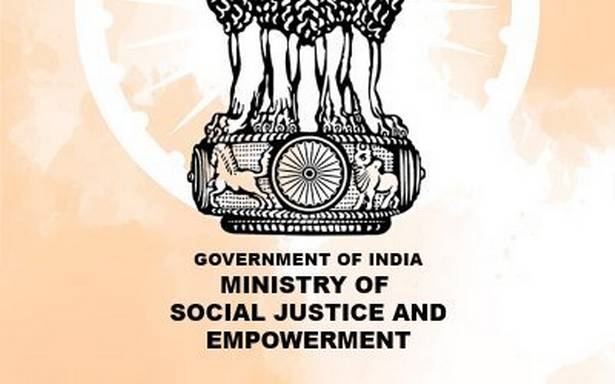Social Justice and Empowerment Ministry has also suggested decriminalising possession of small quantities of drugs for consumption
The Social Justice and Empowerment Ministry has recently recommended that the National Fund to Control Drug Abuse be used to carry out de-addiction programmes, rather than just policing activities, a top Ministry official said on Sunday.
Secretary, Department of Social Justice and Empowerment of the Ministry, R. Subrahmanyam, said the fund, which was created in accordance with a provision of the Narcotic Drugs and Psychotropic Substances Act, 1985, had a nominal corpus of ₹23 crore. Under the NDPS Act, the sale proceeds of any property forfeited, grants made by any person and institution, and income from the investments of the fund, go towards the fund. The Act states that the fund would be used to combat illicit trafficking of narcotics, rehabilitating addicts, and preventing drug abuse.
“It is being used only for policing activities. We recently proposed to add de-addiction to it,” Mr. Subrahmanyam said.
He added that a proposal to decriminalise possession of “small quantities” of drugs, as defined in the NDPS Act, had also been sent to the Department of Revenue under the Finance Ministry. He said his department, which is tasked with conducting de-addiction programmes, would then intervene and have the persons caught with small quantities of drugs for personal use directed to rehab, instead of being prosecuted and sent to jail. Mr. Subrahmanyam said the department had a ₹250 crore annual budget for its de-addiction activities.
According to the National Crime Records Bureau’s Crime in India 2020 report, a total of 59,806 cases were lodged under NDPS Act, of which 33,246 pertained to cases of possession of drugs for personal use, and 26,560 cases of possession of drugs from trafficking.
The number of drug users in the country is in the crores. According to the Social Justice Ministry and All India Institute of Medical Sciences’ report on magnitude of substance use in 2019, there were 3.1 crore cannabis users (of which 25 lakh were dependent users) and 2.3 crore opioid users (of which 28 lakh were dependent users). Mr. Subrahmanyam said this study and others were cited in the department’s suggestion to decriminalise possession of small quantities of drugs.
A retired IPS officer and Deputy Commissioner of Police of the Delhi Police Crime Branch from 1985 to 1990, at a time the NDPS Act was implemented, Amod Kanth, said the Act itself intended to do what the Social Justice Ministry has suggested.
“I agree with their proposal to decriminalise possession of small quantities. The intention of the law is not what the NCB is doing today,” he said, in reference to the NCB’s recent case against Bollywood star Shah Rukh Khan’s son Aryan Khan.
Mr. Kanth, who is the founder of an NGO, Prayas, that works with juveniles, said that in the first four years of the implementation of the NDPS Act in Delhi, the police arrested 5,834 people.
“We found that those who were purely peddlers were not more than 10%. We found that many of them were youngsters who got into the wrong way of ‘experimenting’ and they gave it up. The law clearly defines the different categories. The punishment for those found with commercial quantities is higher,” he said.
He said decriminalising small quantities was “already in the law, but the interpretation has been wrong”.
“90% of the persons caught can be corrected,” he said, adding that he was also in favour of harsh punishments for traffickers.
Source: Read Full Article

